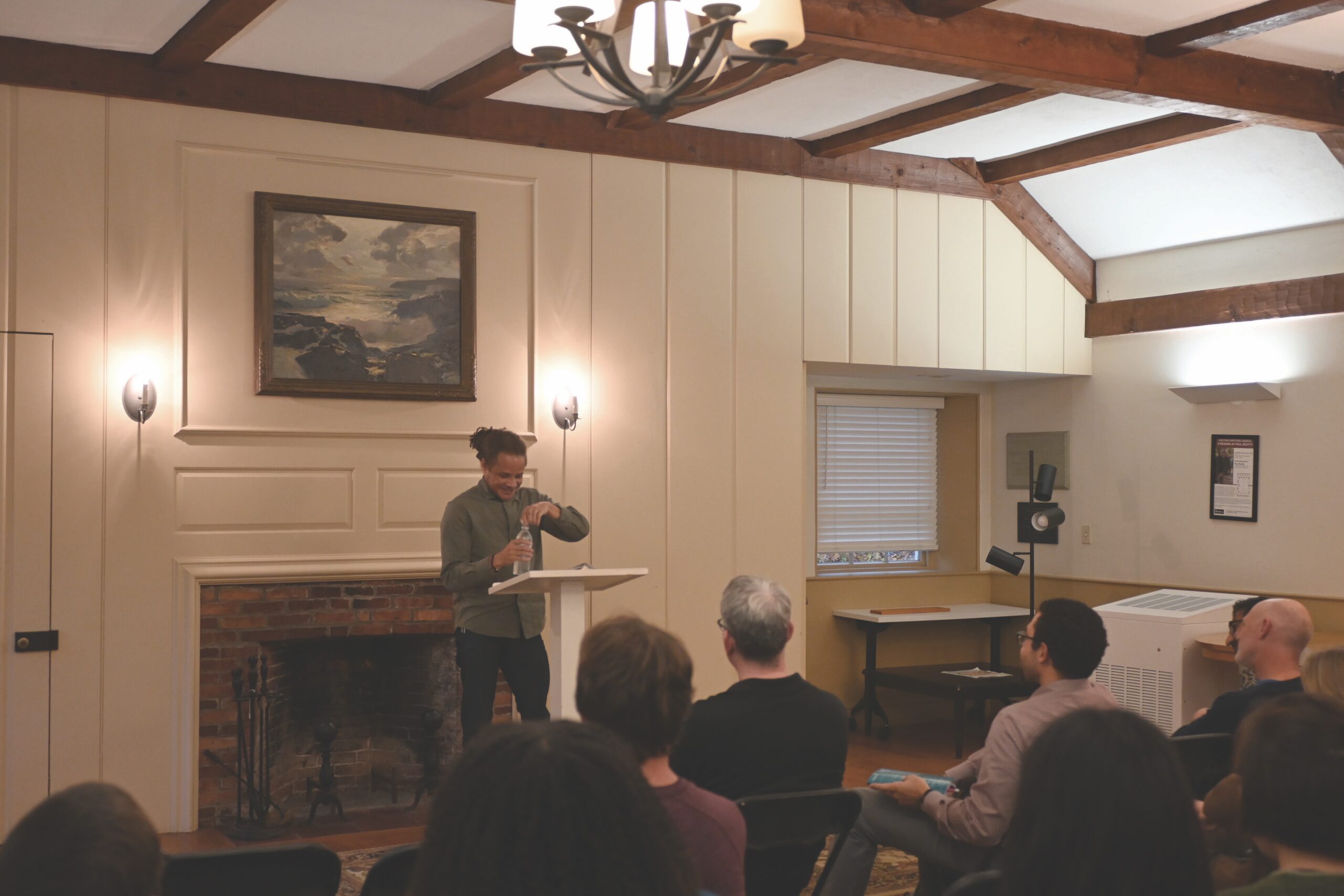Bearing “Witness”: Jamel Brinkley speaks on loss, the everyday and the written word
November 3, 2023
 Thetis Fourli
Thetis FourliOn Monday evening, approximately 45 minutes before he was set to speak, Jamel Brinkley had not decided what to say.
Brinkley, a former Wallace Stegner Fellow at Stanford University, is currently assistant professor at the Iowa Writers’ Workshop and the latest feature of the Alpha Delta Phi Society’s Visiting Writers Series. He was scheduled to read from his latest anthology of short stories: “Witness.” The collection’s evocative name is inspired by a quote by the celebrated writer James Baldwin.
“[Baldwin] is sort of a presiding spirit of the book, one of my epigraphs is from him, and he talks about there being a thin line between being a witness and being an actor,” Brinkley said.
Brinkley said he was drawn to the quote for several reasons, including its connection and relevance to his personal life. Watching friends and loved ones grapple with various challenges led him to reflect on his role in their lives.
“It just made me think a lot about what do you do when [tragedy] starts to happen around you? What are your responsibilities? How do you care for people?” Brinkley said. “I think it’s actually really difficult to care about people sometimes.”
Regardless of Baldwin’s distinction between witness and actor, “Witness” serves to defend the power of witnessing—and acknowledging—uncomfortable truths.
“For me, the book is about characters who are pushed to see what they need to see,” Brinkley said. “People can sort of perceive in a very complacent way and in a way that’s flattering to them, and it keeps them comfortable. But when you really use all your senses and perceive what’s going on, it becomes kind of a moral challenge.”
The idea of challenging oneself was a theme central to Visiting Assistant Professor of English Zahir Janmohamed’s introduction of Brinkley.
“The most talented writer that I consider a friend, he’s sitting right here. It’s Jamel Brinkley,” Janmohamed said. “I have never met a writer so eager for more feedback, to learn more, to really seek introspection.”
It was during those introductory remarks, Brinkley said, that he decided what story to read.
The short story Brinkley chose is titled “Arrows.” He wrote and received feedback on the piece before leaving it untouched for nearly a decade before revisiting the story as he compiled “Witness.”
“Years later, as [“Witness”] was being put together, I took that draft out again. And then I saw what I thought needed to be done to the story. It’s just an idea about being patient with your work. Not being in a rush to understand it or to even get a story right,” Brinkley said.
One of the reasons Brinkley put the story away for so long is because “Arrows” is a ghost story—something he admitted made him uncomfortable.
“One thing that’s weird about this story, for me anyway, because I’m a pretty realist writer—is that it is explicitly a ghost story,” Brinkley said.
“Arrows” follows a son attempting to sell his family’s home, which is occupied by the ghost of his deceased mother.
“He essentially wants to sell a haunted house,” Brinkley joked.
Despite being a supernatural story, “Arrows” is about tangible challenges, such as parent-child relationships, sense of place and loss. Ordinary people grappling with sweeping societal or interpersonal problems is a recurring theme in Brinkley’s work.
“The idea of being a witness sounds like a grand idea, right? But my characters are all everyday people. They really are,” Brinkley said.
After reading from his work, Brinkley engaged in discussion with his audience, both answering specific questions about the story and delving into his writing process.
Brinkley’s last-minute decision on what to read is not unlike this process, marked by perpetual change and interminable revision. Attendees appreciated the author’s willingness to discuss his process and his perspective on writing.
“He also seems to think of writing as a continuum, as a constant process, which I thought was really fascinating,” Patrick F. Sullivan ’26 said.

Comments
Before submitting a comment, please review our comment policy. Some key points from the policy: